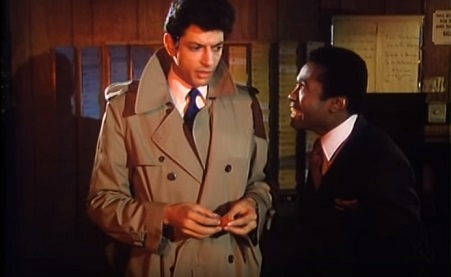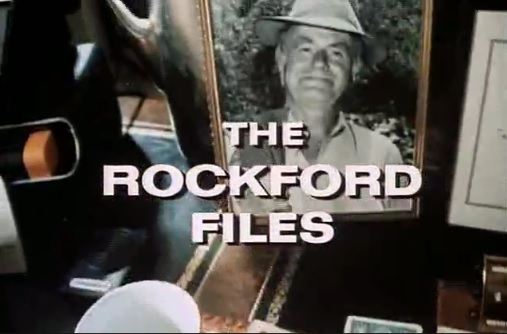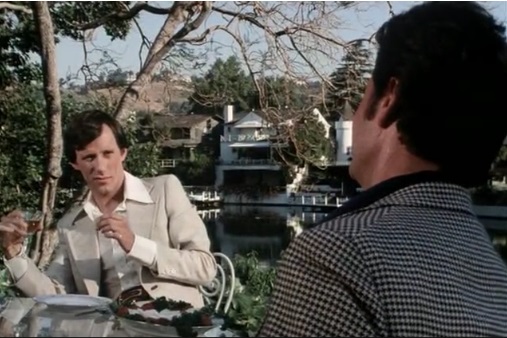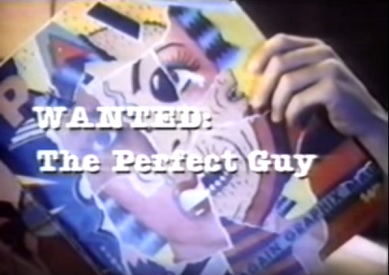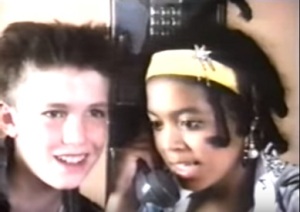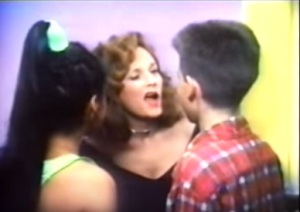
“The Best of Times” (1981)
Failed TV shows are a special kind of disaster, even more so than feature films. They’re special because it takes a lot more work to launch a TV show, even one that’s a dud from the start. As your Kevin Smiths and your Robert Rodriguezes once proved, it’s possible to get a movie made almost entirely through private, personal funding. But a TV show, first you have to pitch it, and then you have to get the funds to produce it, and then you have to get the time slot to air it, and then you have to find sponsors to sponsor it. There are a lot of points in time before a TV show even makes it to broadcast when someone can just pull the plug and scrap the whole thing–here’s a whole list of godawful sounding shows that had several episodes in the can but never made it to prime time.
And yet, we’ve still ended up with garbage like Homeboys In Outer Space, Cop Rock, Shasta McNasty, Cavemen, Work It, Mulaney, and Sean Saves the World. That’s not to mention massive one and done turds like the Animal House ripoff Co-Ed Fever, which barely made it past its “special preview” before getting canned. Or Quarterlife, the “based on a MySpace webseries” about 25 year-olds experiencing existential crises. Or Turn-On, the racier version of Laugh-In that was so lousy it was canceled while the premiere episode was still airing.
Sure, none of them beat Heil Honey, I’m Home, the UK sitcom based upon the hilarious premise of Adolf Hitler being a suburban husband and father, but they’re pretty mortifying all the same, and all of them beg the following questions: who thought of this? What were they thinking? Why didn’t anyone stop them?
The Best of Times elicits these questions, and so many more. Not to be confused with the Styx song or the Robin Williams movie of the same name, it aired on ABC once in 1981 and then was never mentioned again, like a bad date or an upsetting dream. This is unfortunate, because this program is so baffling it needs to be watched by millions, and deciphered like ancient runic text. I watched it one and a half times, and I still can’t find a single clue as to what anyone involved in it thought they were doing, or why they were doing it. Even the internet can’t seem to agree on what it was–Wikipedia describes it as a 48 minute long pilot (which is what I watched), while IMDB lists it as a 95 minute long TV movie. I can’t figure out who the audience was supposed to be for this. I can’t figure out if it’s making fun of or praising its characters. The pacing doesn’t make sense, the plot development is non-existent, the dialogue is written to sound like jokes, and yet it’s not funny. It resembles something you’d see after midnight on Adult Swim, and yet, I’m pretty sure it was completely earnest.
At least we know the “Who thought of this?” can be answered. That would be George Schlatter, who’s produced pretty much every variety show ever made, but is probably best known for producing Laugh-In (and the above mentioned Turn-On). The Best of Times is just one of ten TV shows Schlatter was involved in during a two year period, so it’s entirely possible the extent of his participation in it was signing the check to get it made. Three writers are credited for the script, and it would appear that all of them wrote entirely different scripts, then tore them up and pieced them back together as a single episode, like one of William S. Burroughs’s cut-up projects.
The Best of Times was a sitcom, but it also broke the fourth wall. Yet, it was a sketch comedy show as well, with the occasional song and dance number. The stars of the show were presented as real, ordinary teenagers who were not at all professional actors, but played by professional actors using their own names. Every once in a while, the comedy would stop dead in its tracks so that these everyday, completely regular kids could speak to the camera about serious things that typical teens worry about, like growing up, loneliness, war, and dating.
And who was the lead character in this group of “typical” teens? This guy:

Even at just 17, Crispin Glover already had that same jittery, unnerving energy he still brings to adult roles today, and there’s nothing typical about him. It’s weirder seeing him play a suburban twerp whining about having to clean his room than a guy training rats to kill people in the remake ofWillard. A sentient ball of tics and quirks, he’s incapable of playing “normal.”
And speaking of incapable of playing “normal,” who was the lead character’s best friend? THIS GUY:
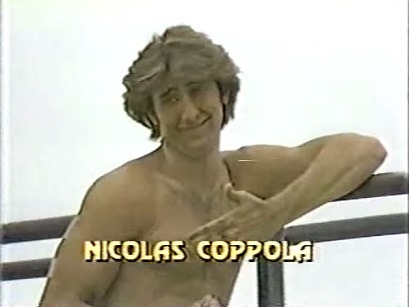
For the two or three of you who might not be aware of it by now, Nicolas Coppola is the birth name of Nicolas Cage. Here he’s just a decade away from banging broads in church confessionals in Zandalee, yet somehow his appearance in a wacky teen comedy show is more jarring.
In addition to just regular dudes and not aliens wearing human skin Crispin and Nick, there’s also Jill (Jill Schoelen), the cute girl next door, Julie (Julie Piekarski), the blonde cheerleader, Kevin (Kevin Cortes), the dorky wannabe ladies’ man, Lisa (Lisa Hope Ross), the kinda chubby girl who’s often seen eating (in one scene she goes cross-eyed in ecstasy while drinking a Slurpee), David (David Rambo), the nerdy guy, and finally Janet (Janet Robin), an aspiring rock star whom Crispin claims is fourteen but looks a decade older. Typical of most “average teens” on television, they’re all very white and very middle class, and their most pressing issue is who they’re going to take to the big dance next week.
Sounds pretty cut and dry, and not at all incomprehensible, right?Haaaaaang on, we haven’t gotten to the musical numbers yet. In fact, let me just give a play by play of this shit collage.
2:12: After being bitched at by his off-screen mother and introducing his friends, Crispin, the ostensible host of this buffet of befuddlement, complains that white, suburban teenagers are “the faceless members of the society,” looked down upon by their elders, constantly harassed by the cops, and “everyone thinks you’re on dope!” And yet, he ends this gripe list with “Remember, these are the best of times!” IMPORTANT NOTE: only teenagers in TV shows and movies proclaim the teenage years to be the best time of your life.
3:25: Kevin, a pleasant looking, perfectly nice young guy rendered undateable because he wears glasses, makes one of several dozen attempts to ask someone to be his date at the big dance. He does it by phone, and if you guessed that this attempt ends with him not realizing he’s been hung up on and saying “Hello…hello?”, congratulations, you qualify for acceptance to our comedy writing correspondence course, please send a check or money order for $19.95 to Laff School, P.O. Box 4738, Hollywood, CA 90028.
4:26: Nick, already cranking up the Cageness to MAXIMUM and throwing air punches, extols the virtues of the Rocky movies to an unimpressed David, who asks “Don’t you ever watch Disney movies?” Surprisingly, the scene does not end with Nick beating David senseless with a weight bar.
4:56: Julie, while sitting at a makeup table with Jill and Lisa, talks about going on a driving date with a boy, and “before I knew it, we’d gone all the way…to San Diego.” The “beep beep beep beep boop” musical cue after that line helpfully lets the audience know that this is a “punchline.”
5:07: Now, if I was Kevin Costner in JFK, and this was my Zapruder film, here is the part I would become obsessed with, when everything goes haywire and nothing makes sense anymore. This is the moment where the show goes from Blandsville on the fast train to Kookootown. Crispin and the gang go to hang out at their local 7-11. Jackie Mason plays the gruff but mostly friendly store owner, Mr. O’Reilly, whose family evidently Americanized their name from O’Reillywitz when they came through Ellis Island. When Mr. O’Reilly grumbles about having to exchange hundreds of glass bottles the kids have brought in for dimes, they torment this decent, hardworking man by engaging in a musical number, dancing in the store aisles, beating on cans, and turning boxes and bottles into instruments. Because you can find anything on the internet, I managed to locate a gif from this scene, and it is profoundly unsettling:
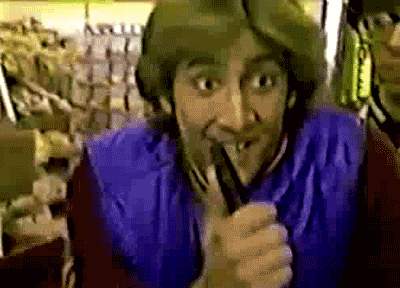
It took me a little while to figure out that Nick is playing a comb; initially I thought, given the way he’s holding it and his patented Nicolas Cage Crazy Eyes, he was flicking a lighter, as if threatening to burn down the store (which would totally be a thing Nicolas Cage would do). Though this scene seems to be going out of its way to reinforce the stereotype that teenagers are the fucking worst, Mr. O’Reilly warms to their showmanship, even dancing a little bit himself. He finds them so charming that when Crispin tells him to put his purchase “on my tab” (NOTE: 7-11 has never operated on a tab system), he just stands there looking puzzled, rather than calling the police and reporting Crispin for shoplifting.
Are you exhausted by all this fun yet?!? Oh wait, there’s so much more.
8:23: Bringing the mood down a notch, Jill turns to the camera and talks about her fear of being lonely, particularly once she goes away to college. “It isn’t easy getting old,” proclaims this beautiful 16 year-old girl with her entire life ahead of her.
9:09: Because 14 year-old Janet apparently doesn’t have a home or parents who love her, she spends most of her time as a roadie, setting up equipment for an all-male band who has no issue letting adolescent girls do their heavy lifting for them. She works for them under the promise that eventually she’ll be able to play guitar in the band.
9:45: Nick counsels Kevin on how to pick up chicks. Already into The Game long before it became popular, Nick tells Kevin to stop looking like he’s happy all the time, and to aggressively interfere in women’s personal space. This scene goes on for more than three minutes. That doesn’t seem very long to you? Try holding your breath for three minutes and then get back to me.
12:50: Lisa, the kinda chubby girl, tells Jill and Julie that she’s trying a new diet, one in which she eats only bread and water. When Julie says it sounds like a prison diet, Lisa replies “That’s right, it’s by the lady accused of shooting the Scarsdale doctor!” Because if there’s one thing that makes for hip teen comedy, it’s references to real-life love affairs that end in murder.
13:40: Crispin complains about how hard it is for a teenager to get a job, leading into another musical number. This time, the gang works at a car wash while singing “9 to 5.” My fondest wish is that, should Nicolas Cage someday receive an Irving R. Thalberg Award, or the Presidential Medal of Freedom, the clip reel will feature him in this, wearing overalls with no shirt underneath, square dancing, and buffing his butt with a cleaning rag. Kevin rollerskates while playing a violin–what, you didn’t do that when you were a teenager? No wonder you’re so sad now. The song ends with the kids shrieking “Crazy if you let it! Crazy if you let it! Crazy if you let it! Crazy! Crazy! Crazy! Crazy!” It becomes a lulling, hypnotic drone, not unlike the noise the Man in the Planet makes in Eraserhead.
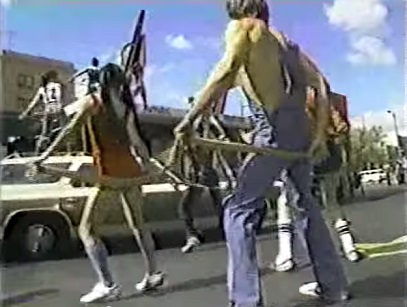
18:57: Kevin, dumped after one day of dating by Julie because he failed a magazine compatibility quiz, begins his quest to find a date to the big dance anew. He tries asking three sisters by telephone, all of whom turn him down, though a fourth sister accepts. “What do you look like? You’re a 10?” Kevin asks in delight. Can you guess what the punchline is here? Go on, guess. Did you guess it was “Oh…you are 10”? Man, you are too clever by half.
20:29: Crispin, not done harassing Mr. O’Reilly, comes into his store to buy the latest release by Talking Heads (certainly when I was growing up the number one source for the hottest new albums was the local 7-11). Nearly hysterical with excitement and not yet understanding how basic human interaction works, Crispin demands that Mr. O’Reilly listen to a track from the album while he flails around in front of him, ignoring the plea for mercy in Mr. O’Reilly’s sad, exhausted eyes.
Can you believe we’re not even halfway through this thing yet? I mean, can you believe it?
22:52: Crispin complains about having to do chores, which leads into yet another insane musical number in which he and the gang extol the virtue of weekends. Everyone wears disturbingly tiny shorts, except for chubby girl Lisa, who remains fully clothed, even while frolicking in a water park. They do aggressively kooky things, like turning somersaults in slow motion and forming a kick line, and Nick gets pulled over by a cop at a go kart track (because the cops are always on these middle class white teens’ backs, man!).

Take a deep breath, we only have one more song and dance number to go. We can get through this, together.
26:12: Julie has a fan letter to Walter Cronkite published in TV Guide, because if it’s one thing teens love more than true life murder trials, it’s elderly nightly news reporters.
28:13: Janet, in violation of several child labor laws, continues lugging around band equipment for free. Curiously, though Crispin refers to her as part of “the gang,” at no point is she ever seen interacting with any of them (she may have appeared in the song and dance numbers, I didn’t actually look that hard).
29:10: Julie and Lisa discover feminism. Julie proclaims that she’ll either be “president or a country singer,” and aspires to be the next Dolly Parton. Lisa looks at Julie’s chest and sneers “Maybe you should just stick with being president.” Because she’s flat-chested, get it? God, what a rich and plentiful humor mine this television program is!
30:06: Kevin continues going through his address book and just pretty much asking anyone out at this point. Eventually, he breaks down and asks the payphone operator to go with him to the dance. She declines.
30:53: Lisa has a framed photo of a male teacher on her bedside table. She tells one of the other girls by phone that the teacher asked her to stay after class, warning her that she was in danger of failing. Lisa reads between his lines. “I think he’s interested in me as a…woman,” she purrs, in a legit (as the kids today say) unsettling, wildly inappropriate moment.
31:51: Jill complains about how the “adult world exploits teenagers” by making them pay $80 for designer jeans. This leads into what appears to be a dream sequence in which she and the other girls manhandle Crispin on a table covered in pants while singing Pat Benatar’s “Heartbreaker.” It’s pretty elaborate as far as jerk-off fantasies go, and Crispin getting caught making a mess of the pants (ahem) by a stern looking adult woman is perhaps a little too overtly symbolic for this wholesome family comedy.

34:48: Crispin tells Jill about a dream he had with her in it (presumably not the same dream in which she was eye-fucking him on a pile of Gloria Vanderbilts) and asks her to go steady. Jill friendzones him.
37:41: David (remember him? he doesn’t get much to do in this) talks Mr. O’Reilly into supplying food for the big school dance for free, explaining that it’ll be good publicity for his store, because people were not yet aware of the existence of 7-11 by 1981.
39:14: Janet gets the band a gig playing at the school dance, under the condition that she be allowed to play with them. Finally, she is freed from her indentured servitude.
39:40: In another gem for the lifetime achievement clip reel, Nick speaks to the camera about his fear that he’ll have to fight in the war against El Salvador. The monologue sounds as though it was written 10 years earlier for another, probably equally terrible TV show, and someone merely swapped out “Vietnam” for “El Salvador.” Though he’s afraid of what the future holds, Nick is an optimist–at least he can use the prospect of being drafted to get hot chicks to bone him. “I just hope we don’t have a war!” he cries, then wanders away down the beach in a moment of quiet introspection.
42:20: It’s finally the night of the big dance. Crispin, an irritating asshole to the very end, mocks his parents having fun and enjoying each other’s company. The evening is a smashing success–Janet gets to pantomime her way through a blistering generic 50s rock ‘n’ roll guitar solo, Kevin scores a date to the dance with Julie, the prettiest girl in school, Jill seems to be warming up to the idea of dating Crispin, and Nick telling his date “It’s off to the war in El Salvador tomorrow!” has the desired effect. Nearly 45 minutes of these characters complaining about how hard it is to be them wrapping up with everyone getting exactly what they want is merely the weird cherry topping off this bizarre little sundae.
45:15: Mr. O’Reilly just doesn’t know what to make of this crazy teenage dancing nonsense. Meanwhile, the food he’s provided is being wolfed down by the kids as if they were all released from a basement dungeon earlier that afternoon.

We end the show with Crispin chiding the audience for misunderstanding teenagers. You see, they’re just scared of growing up, and that’s why they get “a little wild and crazy” sometimes, like buffing their behinds with cleaning rags or blowing into soda bottles like the Frogtown Hollow Jubilee Jugband. “Next time you see one of us,” Crispin advises, “Just say to yourself, hey, that used to be me.” He then bids goodnight, and flails around to the theme song.
If I put an unnecessary amount of detail into recapping The Best of Times, it’s because I need help understanding it. If this was a pilot, and a pilot is essentially a sample episode of a proposed television series, can you imagine how this would have turned out if it made it to full production? And if it was a one-off special, who was it for? It was a show written about teenagers that makes references to things teenagers either don’t know or don’t care about, in addition to icky jokes about underage girls wanting to fuck their teachers. For a show that purports to present its young characters in a positive, likable manner, everyone seems a little dumb and self-centered. The musical numbers don’t help; in fact, they do the opposite of help. After spending nearly an hour with Crispin and the gang, you’ll be begging to spend some time in a retirement community, or perhaps volunteering as a kindergarten teaching aide. If The Best of Times was an actual teenager, it would deserve to get pantsed and stuffed in a locker.


